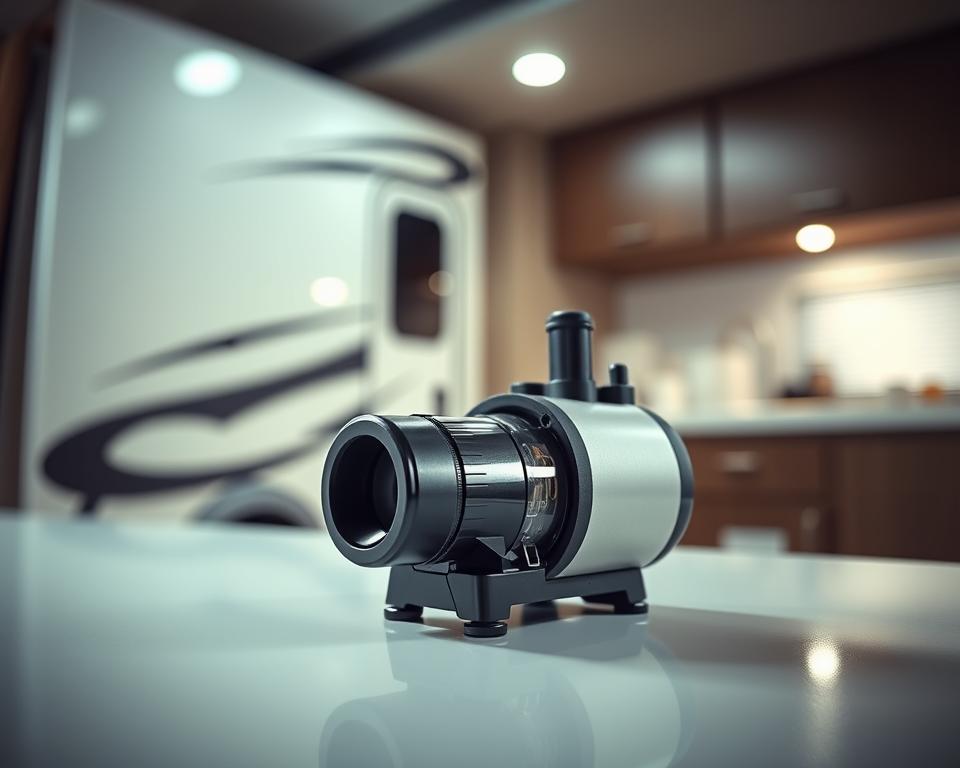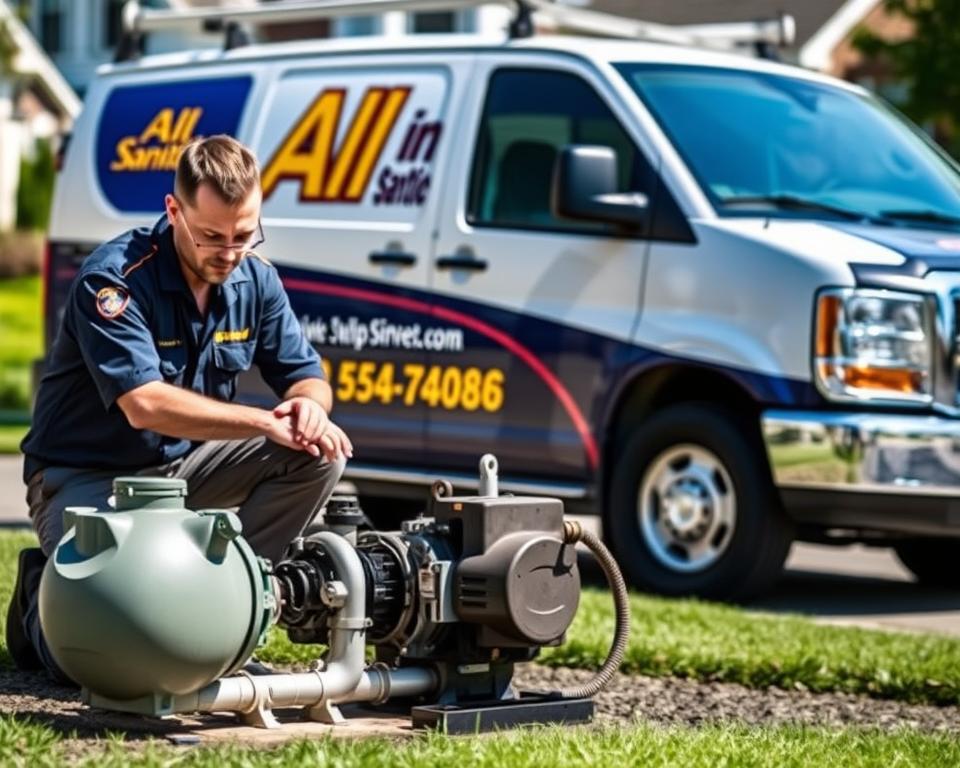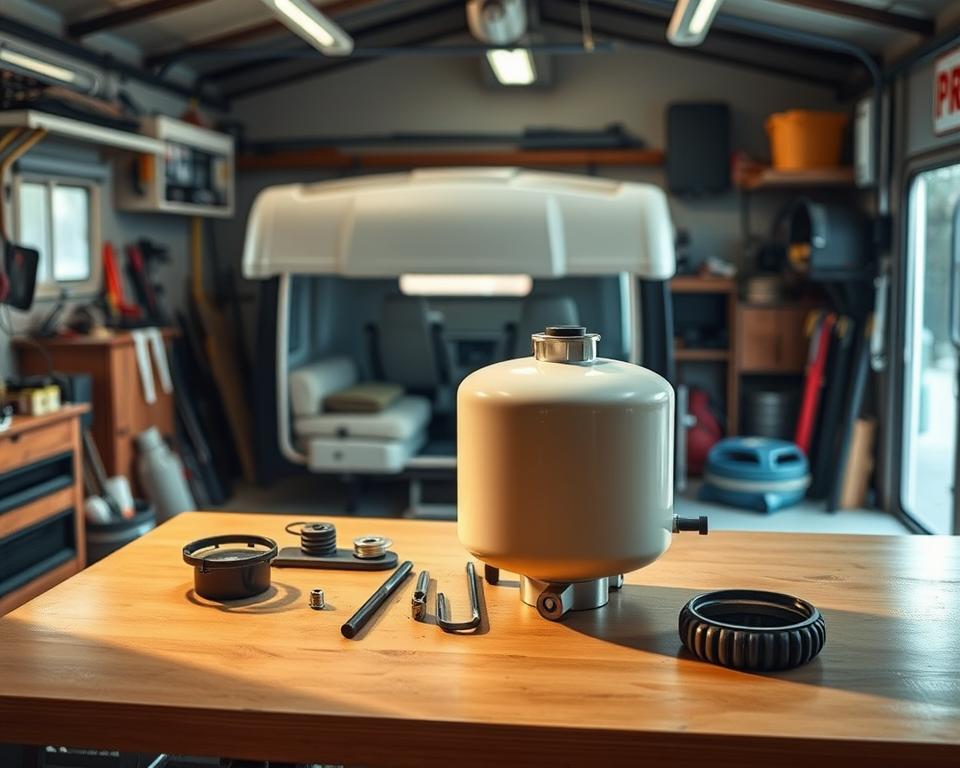Tips for Efficient Ojai RV Waste Disposal
Select the Right RV Sewage Pump to Suit Your Needs
Ever considered whether a modest piece of machinery could seriously influence your RV lifestyle? Finding the proper RV waste Pump is crucial for every RV owners. It noticeably boosts your road experience. Below, we’ll review multiple choices, focusing on features, categories, and premium selections for peak performance.
A trustworthy RV Sewage Pump is central to preserving cleanliness. It efficiently manages waste from your RV’s facilities. Knowing its value empowers you to choose that improve your time on the open road.
Highlight Reel
- Why choosing the ideal sewage Pump for RVs.
- Key features to weigh in a portable RV Pump.
- The various kinds of motor-coach Sewage Pumps you can buy.
- Ways an RV sewage Pump boosts comfort during travels.
- Preferred leading RV Sewage Pump brands.
- Best practices to keep an RV sewage Pump running longer.
Grasping the Value of an RV sewage Pump
An RV septic service near me is fundamental for processing black and grey water effectively. It prevents backups, foul smells, and sanitation issues, ensuring comfort and cleanliness. Whenever the Pump system fails, the job of waste disposal becomes troublesome, reducing the joy of RV life.
Investing in a top-quality sewage Pump secures a stress-free journey. Brands like All-in-Sanitation showcase the significance of a reliable Pump. It’s key for maintaining your environment clean and comfortable while on the move.
Categories of RV sewage Pumps
Being aware of the different categories of RV sewage Pumps is essential for effective waste management. Among these, three kinds stand out: fixed, portable, and 110V Pump models.

A hard-mounted RV Sewage Pump is placed once beneath the vehicle. It’s a reliable, hassle-free choice for waste processing, perfect for those traveling often. Installation may take effort, but it provides steady performance thereafter.
Conversely, a detachable RV Pump unit suits older RVs lacking built-in waste systems. It’s quick to assemble, granting flexibility for travelers who move often. This Pump is particularly valued for its ease and adaptability.
The 110V sewage Pump is known for its strong efficiency. It’s built for larger waste disposal needs. However, it might be too powerful for standard RV use. Owners should consider their specific requirements before choosing this type.
| RV sewage Pump Type | Installation | Efficiency | Best For |
|---|---|---|---|
| Fixed RV sewage Pump | Permanently installed | High | Full-timers |
| Portable RV Pump | Easy to set up | Moderate | Vintage rigs |
| 110V Pump | Requires a power source | Very high | Big-rig needs |
Operation: How an RV sewage Pump Work
The RV sewage Pump works like a household garbage disposal. It macerates solid waste into a fine slurry for easier handling. The system then pushes this slurry through a narrow hose, ending at a designated dump site, such as an RV park’s waste station.
RV enthusiasts frequently select the RV macerator Pump setup for optimal waste management. This choice minimizes odors and streamlines disposal, especially when the holding Tank is high. It allows uphill pumping, making waste disposal effortless for users.
Top Features to Look for in an RV sewage Pump
In picking an RV Sewage Pump, look at elements that boost function and user satisfaction. Seek out easy installation, steady performance, and robust build quality. Pumps with a high flow rate are vital, guaranteeing efficient waste removal, especially at peak times.
The ability to move waste over barriers and into appropriate sewer outlets is critical. This function significantly boosts the ease of RV Pump use. A key safety attribute is over-heat protection. It prevents overheating, thereby extending Pump life. Additionally, quiet operation deliver a more enjoyable camping experience.
User-friendly features in camper Sewage Pumps are needed. Companies like VEVOR provide reliable Pumps fitted with stainless-steel blades and simple controls. These features guarantee the Pump’s performance with various wastes and strength under regular usage.
Reasons to Select an RV Macerator Pump-type
An RV macerator Pump system is a top choice for many RV enthusiasts because of its pluses. It transforms solid waste into a slurry for easy disposal through small hoses. This process greatly cuts messes and unpleasant smells typically tied to waste dumping.
These Pumps also shine in managing waste in uphill sewage systems. This versatility gives RV owners to handle waste disposal in challenging terrains. Brands like All in Sanitation have developed high-efficiency units. These products simplify what could be a tedious chore, emphasizing user-friendliness and hygiene.
Going with an efficient RV waste Pump boosts sanitary conditions and supports adequate waste management while on the road. With an RV macerator unit, adventurers can approach their journeys with greater ease, armed with a dependable waste disposal solution.
Key Benefits of Using an RV sewage Pump
Investing in an RV sewage Pump provides numerous advantages for RV enthusiasts. A major benefit is preventing waste system clogs. Such clogs can create considerable delays and problems. With an effective sewage Pump, these issues are minimized, providing smooth travels.
The removal of foul smells is another important advantage. A Sewage Pump helps process waste properly, keeping smells within the tanks. This is essential for those spending long periods in their RV, ensuring a more enjoyable environment.
Moreover, waste disposal becomes significantly quicker with a portable RV Pump. Traditional disposal methods are minimally efficient. With a sewage Pump, RV owners can drain tanks swiftly, turning to exploring rather than sanitation chores.
An RV Sewage Pump also assists in extending the lifespan of holding Tanks. Efficient waste management means tanks face less strain, which cuts the wear on important components. Companies like All-In Sanitation supply quality Pumps that help campers travel worry-free, dedicated to their adventures.
Leading Brands for RV sewage Pumps
Selecting an RV sewage Pump is easier when you know the top brands. Brands like Flojet, VEVOR, Sani-Con by Thetford, and Clean Dump are leaders in the industry. They produce high-quality Pumps suited to meet the wide needs of RV owners.
Flojet is famous for its reliable RV sewage Pumps that are easy to install and function efficiently. VEVOR stands apart with units designed for longevity, guaranteeing long life. Sani-Con by Thetford offers cutting-edge macerator technology for sanitary waste disposal. Meanwhile, Clean Dump offers systems that simplify waste management considerably.
Conducting research on the top RV sewage Pump brands can help RV owners make well-informed decisions. All in Sanitation shines for its dedication to providing reliable RV waste management solutions.
| Brand | Key Features | Strengths |
|---|---|---|
| Flojet | Simple installation, strong output | Durability and reliability |
| VEVOR | Rugged designs, diverse models | Solid results in tough conditions |
| Sani-Con by Thetford | Macerator technology, user-friendly operation | Clean waste disposal |
| Clean Dump | User-friendly systems | Effective waste management |
Purchasing Guide: Picking the Best RV sewage Pump
Guaranteeing a seamless travel experience demands choosing the correct RV sewage Pump. This guide outlines critical considerations. Initially, assess your system requirements. Most Pumps offer straightforward installations, supporting straightforward setups even for first-timers. Opt for a Pump that easily manages waste, providing a worry-free adventure.
Budgeting is necessary. Quality RV Sewage Pumps typically range from $200 to $400, depending on features and performance. A wise investment in a robust unit protects against future complications. When weighing your options, pay attention to the unit’s specifications. Prefer models with ample power to effectively handle waste and avoid clogs.
To discover the ideal RV Sewage Pump, evaluate its portability and weight. Select lighter models for ease of moving and installation, perfect for RV enthusiasts. Picking a Pump that aligns with your RV lifestyle secures effective waste management. This enables for more enjoyment of your travels without the hassle of maintenance woes.
| Feature | Why It Matters | Budget Range ($) |
|---|---|---|
| Installation Ease | Less labor | 200-400 |
| Power Capacity | Handles waste effectively | 200-400 |
| Portability | Lightweight | 200-400 |
Common Issues with RV sewage Pumps
RV sewage Pump problems often arise from a variety of factors that impact their functionality. Understanding these issues is key for effective troubleshooting of your RV waste Pump. Clogs are a primary problem, often due to improper disposal or using unsuitable materials. Conducting regular inspections can prevent these clogs from worsening.
Overheating is another serious issue for RV owners. This problem indicates that the unit is either overworked or blocked, requiring immediate intervention. Noisy units, particularly those making grinding or whistling noises, suggest wear or clogs. Swiftly addressing these sounds can prevent further damage and lengthen your unit’s life.
Sometimes, RV owners might encounter unit failures. These failures could result from mechanical or electrical issues, needing expert troubleshooting of the RV waste Pump. Knowing how your unit typically performs aids in identifying any unusual behavior swiftly.
Taking on a proactive approach to maintenance is key to solving these RV sewage Pump issues. By being watchful and performing frequent inspections, RV owners can improve their Pumps’ efficiency. This delivers a smoother experience while traveling.
Maintaining Your RV sewage Pump
Keeping your RV Sewage Pump in good condition is critical for efficiency. This means regular checks and cleanings to boost its longevity. Use a simple checklist to stay on track:
- Inspect the unit for any signs of wear or damage.
- Clean the unit’s hose and connections at least once a year.
- Check electrical connections to ensure they are secure.
- Monitor the impeller for any signs of degradation.
When it comes to macerator units, frequently assess the blade sharpness. Dull blades will not work as well, leading to poor performance. Swiftly replace parts that show wear to prevent the Pump breaking down. These easy steps will ensure your Pump remains reliable.
Top Recommendations for the Best RV sewage Pump
A handful of models stand out in the RV sewage Pump category for their performance and reliability. The VEVOR RV Macerator unit is popular for its high flow rate and ease of use. It manages waste with efficiency, providing RV owners a reliable experience.
The Flojet 8555-000A is another superb choice, famous for its unique dry-run protection feature. It’s a durable option in the realm of portable RV Pump units, shielded against potential damage.
For those who appreciate silence, the SeaLand Sanipump is a prime pick. It delivers efficient waste management with minimal noise, creating a comfortable journey in your RV.
Here is a comparison table of these front-running macerator Pumps and their features:
| Model | Flow Rate | Special Features | Noise Level |
|---|---|---|---|
| VEVOR RV Macerator unit | Up to 20 GPM | High flow rate | Moderate |
| Flojet 8555-000A | Up to 13 GPM | Dry-run protection | Low |
| SeaLand Sanipump | Up to 15 GPM | Quiet operation | Very low |
Budget Considerations for RV sewage Pumps
The price of RV Sewage Pumps differs due to numerous factors. Understanding these elements assists in making educated choices when buying an RV waste Pump. Pumps that are mobile generally range from $200 to $300, giving a cost-effective option for RV enthusiasts. The installation costs can greatly influence the total price; for instance, integrated systems might improve the cost to about $400.
Accounting for the additional charges, such as service fees or the need for professional installation, is important. These added expenses are critical for those opting for professional assistance. Moreover, ongoing maintenance, accessories, and potential repairs also influence the overall investment in RV Sewage Pumps. Budgeting for these costs in advance allows for a more enjoyable RV lifestyle without unexpected financial strain.
Final Notes
A reliable RV sewage Pump significantly influences a pleasant RV experience. It allows you to make smart choices, cutting messes and nasty scents. Understanding the different Pumps, their features, and how to maintain them lets owners choose wisely.
It’s important to consider trusted brands like All in Sanitation, recognized for their tailor-made solutions. Selecting the correct RV Sewage Pump guarantees carefree journeys and simple waste management.
Bear these ideas in mind as you search for the best sewage Pump. The proper choice provides comfort and conservation of both your RV and the environment. Enjoy your trips!


